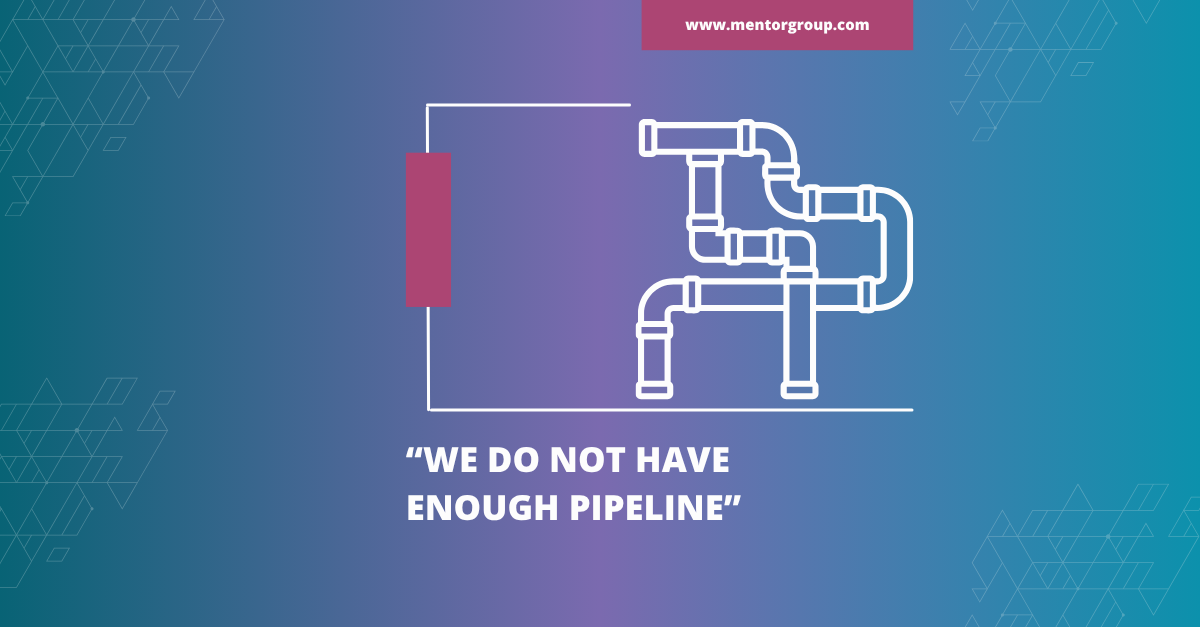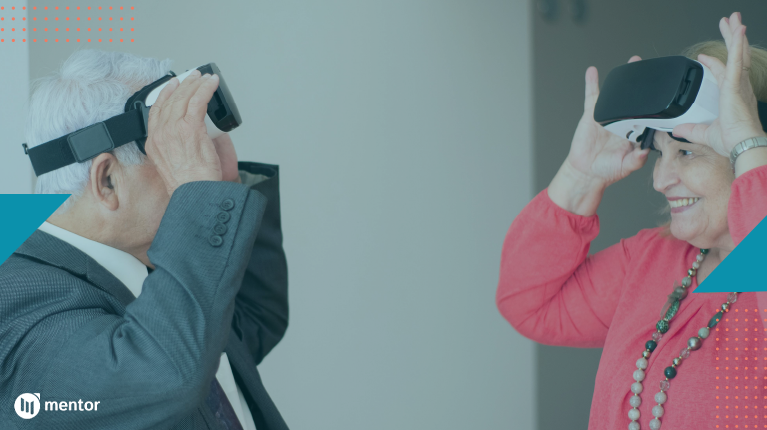%20Training%20vs%20Online%20Training%20FI.webp?width=1200&length=1200&name=Virtual%20(VR)%20Training%20vs%20Online%20Training%20FI.webp)
Technology has completely transformed sales training. Gone are the days of traditional classroom-based learning. More advanced methods such as virtual reality training and online training are easier, less time consuming, more cost effective, and more effective than their outdated counterparts.
Is virtual training the same as online training?
Virtual reality (VR) training is often referred to as a form of online training as, naturally, it takes place in an online virtual environment. However, in this post, we are referring to online training as online courses or e-learning methods such as webinars, gamification and online sales coaching.
Virtual training places the focus on interacting with customers and acting as a form of learning on the job, whereas online training is more about teaching techniques and methods in an online environment.
What is virtual (VR) sales training?
Virtual sales training employs virtual reality technology to deliver a state of the art sales training solution which allows for the same experience as learning on the job, without the potential risk of talking to real customers.
Mistakes are a massive part of learning and improving, and the same is true for your sales representatives. You don’t want them to make these mistakes when communicating with a real customer, as this means you’re losing sales and reputation. But what if your team could make these mistakes in a real-time scenario which simulates real-life, without losing customers?
Virtual sales training uses artificial intelligence (AI) and VR to put sales representatives in a range of scenarios. Trainees enter the VR world by putting on a virtual reality headset and engaging in conversations with AI powered ‘customers.’ This AI is able to give real-time responses and challenge your sales team in an endless number of ways. These systems can also be personalised to focus on the specific pain points of your team to maximise the effectiveness of your sales training program.
-1.webp?width=1200&length=1200&name=Virtual%20call%20illustration%20(1)-1.webp)
What is online sales training?
Online sales training uses methods such as e-learning and webinars to provide sales training solutions. At Mentor Group, we use a digital learning platform known as ‘Kairos’ to provide a number of tools, including data driven learning paths and a number of digital and physical training games to help implement learning.
Online sales training can also effectively take the form of a modernised version of traditional sales training; online training incorporates new technology with established ideas and techniques. Sometimes, the most effective forms of training are through webinars, an online version of seminars, and virtual instructor led training (VILT).
VILT is just an extension on instructor-led training, an effective training method in which an instructor takes charge of either an individual or a group to deliver effective learning. The ‘virtual’ element is an advantage because it is more convenient for trainees, and is accessible at almost any time, as it does not require in-person attendance.
VR sales training vs online sales training courses
%20Training%20vs%20Online%20Training%20internal%20image-2.webp?width=1200&length=1200&name=Virtual%20(VR)%20Training%20vs%20Online%20Training%20internal%20image-2.webp)
It is worth outlining some of the differences between VR and online sales training. Whilst useful to use the two methods in unison, knowing the main differences will help you to understand the optimal choice to use in each scenario. VR training has a lot of benefits, and is usually the most effective sales training solution:
High Engagement - VR training engagement levels are so high because of the level of immersion involved. To partake in this sales training method you have to physically put on a VR headset - sales trainees find this much more enjoyable and easy to follow than generic online training.
Confidence - Both VR and online sales training courses can increase confidence levels drastically. Often, online training courses teach the skills, and VR implements them. Your sales team can apply what they’ve learned in a low-stress environment which simulates real life.
Speed - VR training tends to be quicker than online training methods such as webinars or online sales coaching. For quick but reliable results, consider using virtual reality to get the most out of your sales team, in the shortest amount of time. However, this is not to say that online sales training is not effective, a more methodical and slow paced approach might be optimal for a sales team looking for long-term growth with consistent results.
Format - Naturally, VR training and online sales training take very different forms. VR training involves speaking to AI in a virtual environment, whereas online training consists of watching videos, completing quizzes and games, and speaking to sales coaches and mentors. One format isn’t necessarily better than the other, so consider which would be better suited to your team and representatives, as well as how much time you can dedicate to each.
Utilising both online and VR sale training methods
Despite the advantages of VR over online sales training methods, both are highly effective, and in most cases, are best used together at least to some degree.
Mentor Group can offer state of the art solutions in both cases. Our award winning digital learning platform provides the best of online sales training. Your team will have access to bespoke training, world-class trainers and consistent gamification/testing to monitor progress as well as reaffirm learning.
In terms of VR training, we have a tried and tested method of utilising virtual reality headsets to deliver a completely personalised immersive training experience. You can read how we ensured sales success using VR training with Lenovo.
If you want to learn more about how Mentor Group can help your business adopt a revenue-centric strategy, and transform the revenue potential of your organisation in the process, visit our Contact Us Page or reach out directly to info@mentorgroup.com










